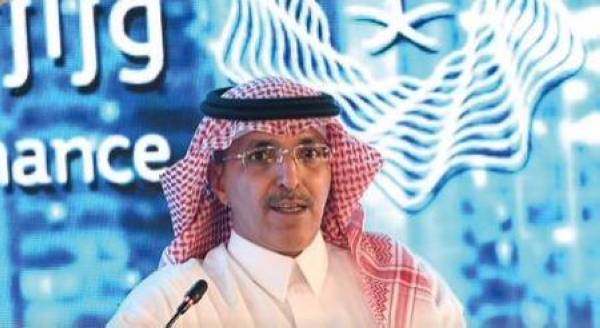Publisher: Maaal International Media Company
License: 465734
ِAddressing Asian Infrastructure Investment Bank's board of governors
Circular Carbon Economy Approach shall be Adopted -Al-Jadaan Says
Taking part, in the annual meetings of the Board of Governors of the Asian Infrastructure Investment Bank, which has been virtually held, Minister of Finance Mohammed Al-Jadaan stressed that in light of the great and increasing disparity in the ability of countries to access energy, the world has become in need of supporting all energy sources, to enhance economic growth and sustainable development, adding that climate finance should focus on dealing with greenhouse gas emissions, rather than on energy sources.
Significance of synergizing the efforts of the Asian Infrastructure Investment Bank with other international financial institutions and organizations, in order to facilitate the development of technologies, lies in enabling carbon capture or sequestration, storage and reuse, calling on the bank to take advantage of what is offered by the circular carbon economy approach, as one of the effective ways to address climate change, he stressed.
Funding process in the field of infrastructure has been temporarily retracted; this is in view of drawing attention to the urgent needs caused by the (Covid-19) pandemic, he elaborated, noting that “as the crisis recedes, we should expect significant growth in demand, given the deficiencies that existed in the infrastructure before the pandemic, which are likely to have increased since then.
اقرأ المزيد
Now, noting that the bank needs to be prepared to play its part in meeting those needs, and that shall be with a special focus on enhancing energy access..
Al-Jadaan urged the Asian Infrastructure Investment Bank to explore ways of cooperation within the framework of the Kingdom’s efforts, to combat climate change, which includes the Saudi Green Initiative and the Green Middle East Summit, through which the Kingdom aims to achieve net zero emissions by 2060.
A number of member states of the Asian Infrastructure Investment Bank are facing the impact of financial restrictions and high debt burdens, and that these restrictions and burdens require the private sector to make a much greater contribution to infrastructure financing, indicating that mobilizing private capital will be extremely important in 2022 and beyond.








